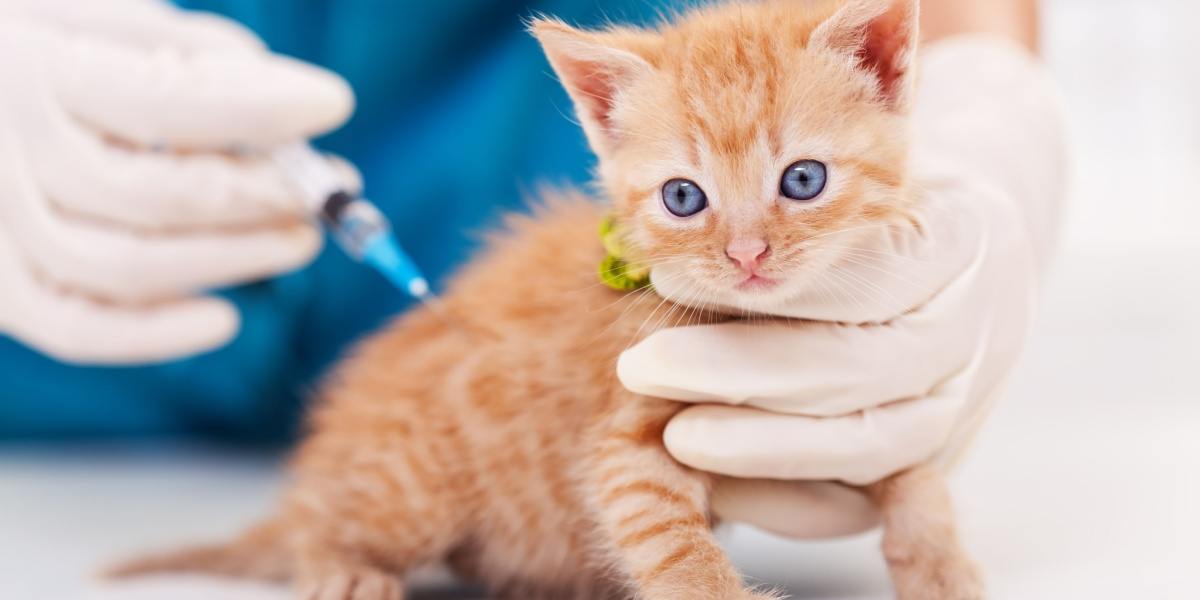
Distemper is an old-fashioned general term that’s used to describe a serious infectious disease of dogs and cats that causes fever along with respiratory, gastrointestinal, and neurological symptoms.
In dogs, Distemper is caused by Canine Distemper virus, while in cats, Feline Distemper is more commonly and correctly called “Feline Panleukopenia”, a serious and life-threatening viral infection caused by Feline Panleukopenia Virus (FPV).
What Type of Illness is Distemper in Cats?
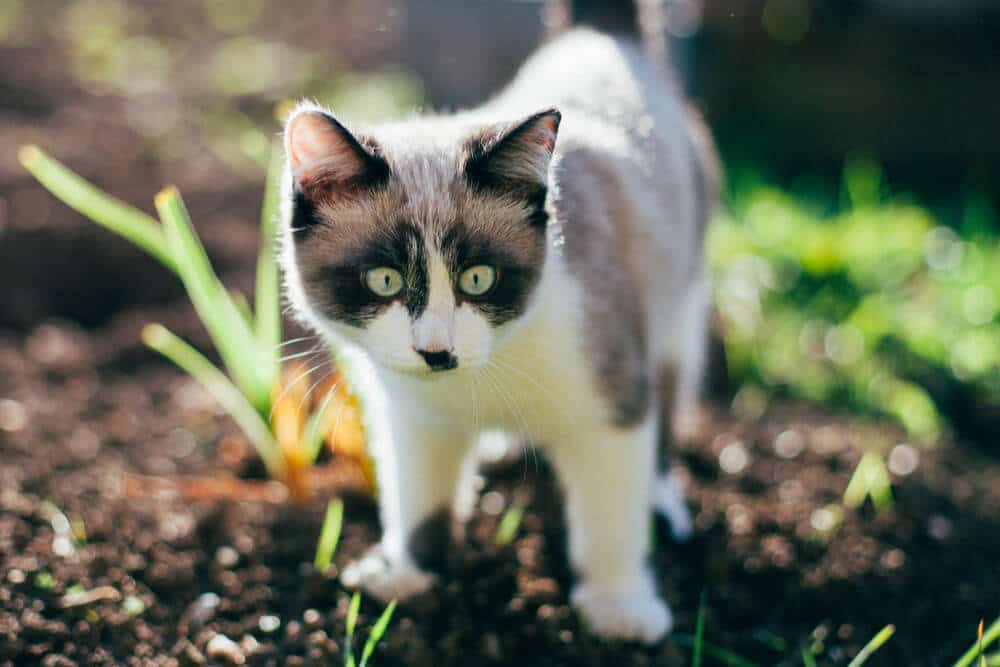
Feline parvovirus (also known as distemper) is serious and life-threatening, with a high mortality rate among kittens.
Feline Distemper, or Feline Panleukopenia, is a highly contagious disease caused by the Feline Panleukopenia virus, with a high mortality rate for unvaccinated cats, especially kittens aged between 2 and 5 months.
The virus is similar to Canine Parvovirus, and the clinical signs are similar too, with the intestinal tract being a focus for viral damage. Infected cats have a high temperature, dullness, inappetence, as well as vomiting, diarrhea, and a range of other systemic signs. As its name suggests, the virus causes significant suppression of white blood cell production in the bone marrow (panleukopenia), with the consequently suppressed immune system making affected cats even more vulnerable to serious complications of the illness, including bacterial infections.
What Is the Distemper Vaccine for Cats?
The vaccine for Feline Distemper (Panleukopenia) is included in the standard combination vaccine that’s given to all kittens, otherwise known as the FVRCP vaccine.
Read More: FVRCP Vaccine for Cats: What You Need to Know
This vaccine includes Feline Viral Rhinotracheitis (caused by Feline Herpesvirus) and Feline Calicivirus, upper respiratory infections are known generally as “cat flu”, whose signs include sneezing and nasal discharge. These are all known as core vaccines, meaning that vaccinating all cats against these diseases is recommended under the World Small Animal Veterinary Association (WSAVA) and American Association of Feline Practitioners feline vaccination guidelines.
When Should Your Cat Get a Distemper Vaccine?
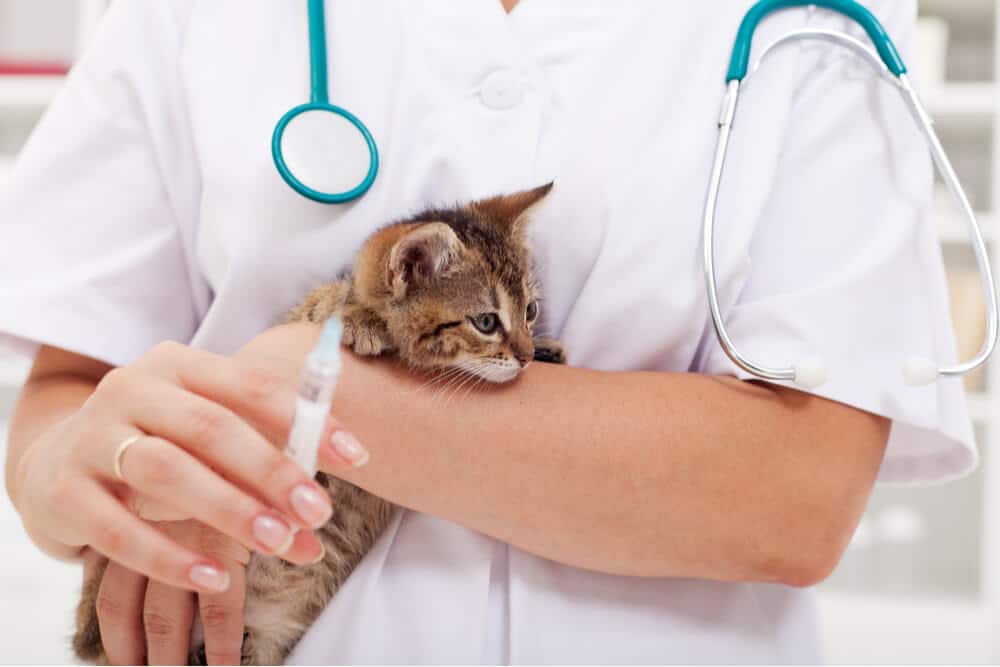
Kittens should receive their first distemper vaccination when they’re 8-9 weeks of age, followed by a second vaccine 3-4 weeks later, another at 14-16 weeks of age, and boosters 6-12 months later. Depending on the cat’s needs, further booster shots may be required every 1-3 years after that.
The precise timing of vaccinations depends on the type of feline vaccine schedule used by your local veterinarian, so you should discuss the details with them directly.
In general, vaccinations are recommended for young kittens at 8–9 weeks of age, with a second vaccine given 3–4 weeks later. A third vaccine is often given between 14–16 weeks of age. A booster vaccination is then given 6 – 12 months later, with further booster shots every 1 – 3 years depending on the cats’ needs.
Also Read: Cat Vaccination Schedule
To decide when or if your cat needs booster shots, discuss your cat’s lifestyle with your veterinarian.
How Much Does the Distemper Vaccine for Cats Cost?
The cost depends on your location and your choice of veterinarian: you should phone around your local area to discover the range of prices in the market place. In general, the fee represents a combination of a veterinary clinical examination of your pet (to make sure that they are healthy enough to vaccinate) as well as the cost of the virus vaccine itself.
Distemper Vaccine Side Effects
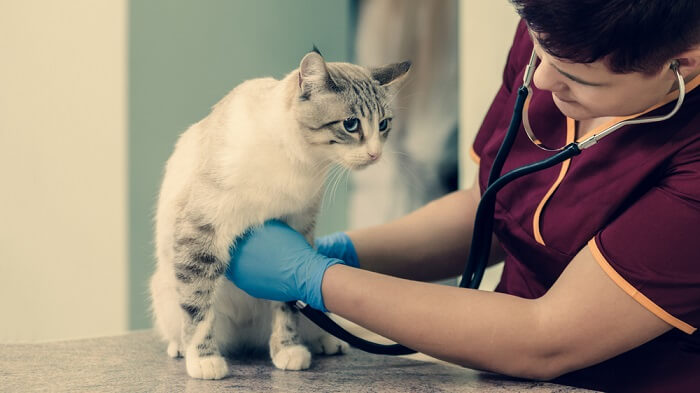
Side effects to Feline Distemper (Panleukopenia) vaccination are rare and usually very minor. They include transient episodes of dullness, with mild fever.
Occasionally, there may be minor swelling and discomfort at the injection site. As with any injected product, allergic anaphylactic vaccine reactions can occur, with more serious signs. This reaction, however, is extremely rare. As a veterinarian qualified for over thirty years, I have never witnessed this after a cat vaccination against Panleukopenia.
Frequently Asked Questions
Do indoor cats need a distemper shot?
All kittens and cats should receive initial primary courses of vaccination against Feline Distemper (Panleukopenia) because the viral particles are excreted from ill animals, and they can live in the environment for a protracted period of months or years. This means that there is a risk of a human bringing the virus back to the house with them, which is why a basic level of protection is important for all cats, even if living indoors.
Can cats get distemper after being vaccinated?
Vaccination against feline distemper (panleukopenia) provides solid long lasting immunity against the disease, so barring exceptionally unusual vaccine failure, your cat will be fully protected against the disease.
What vaccinations do indoor cats need?
Cat owners should discuss their own cats' vaccine needs with their own DVM veterinarian, so that any specific risk of exposure to viruses can be identified and discussed. In general, the primary series of vaccinations against FVRCP (which includes Feline Distemper) should be given to all kittens and cats. Indoor adult cats may be given booster vaccinations every three years to maintain minimal immunity. Cats that go outside, mingling with other cats, or cats that go to boarding kennels or catteries, or to cat shows, may be given an annual booster vaccination, but again, this is a topic for discussion with your own vet.
Rabies vaccine may need to be given, depending on legislation in your part of the world, and depending on travel plans that you may have for yourself and your cat. Rabies is considered to be a core vaccine in the United States.
Feline leukemia virus (FeLV) vaccination should be discussed with your vet, but this illness cannot generally be passed on indirectly in the same way as other viruses, so may not be needed: this is regarded as a non-core vaccine.
Other non-core vaccines that you may wish to discuss with your vet include Bordetella, Chlamydia, FIV and Feline Infectious Peritonitis (FIP).
What is the feline distemper vaccine called?
The term Feline Panleukopenia, or Feline Parvovirus, is more likely to be used than “Feline Distemper”. The vaccination is usually given as a combination vaccine, in the form of the FVRCP vaccination, and so it may be included in general terminology like “shots”, “vaccine boosters” etc. For more detail on precisely what vaccination your cat is being given, you should always discuss the details with your own veterinarian.




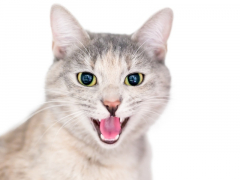
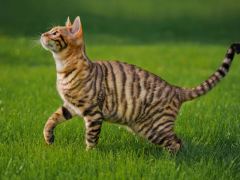

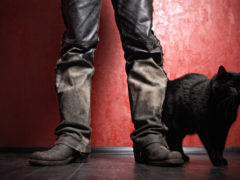
Hi. our kitten came home from the shelter acting like a typical kitten, pouncing and playing. She was due for her second distemper shot the next day which the shelter gave her. Two days later she was feverish and very lethargic. Not eating or drinking all day. I figured it was a reaction to the shop but was concerned about her getting dehydrated so I took her to a vet the next day. Also, on this second day she was limping. The vet gave her fluids and an antibiotic to knock out any possible underlying issues that may have come home from the rescue shelter. On day 3 she is eating and drinking again, but still fairly subdued. No interest in playing. She will just stare at even a string moving in front of her. Should I be concerned with this on day 3.
Hi. Thanks for responding. We took her to the vet yesterday. She had a temp of 103.2 and had gone from 11 lbs to 10.6 pounds since the 8th. She had been eating and drinking when I took the dishes to her but as our vet has said in the past “she eats like a Labrador” and she clearly didn’t want to eat as much as she normally does. The vet gave her 75 cc of fluids and an antibiotic injection. He said that if it’s an infection that would help it but that he didn’t yet want to give her steroids if it was a vaccine reation because it will depress her immune response. If she’s not improving by tomorrow morning then we have an appointment for 9am for further tests and likely steroid injection if needed.
However – she just meowed for dinner which is awesome! She’s also going to our other cat to have him groom her which is normal but she hadn’t done that for a while. I think that she’s feeling better.
Over the last few days I’ve noticed that one of my cats appears to have a suppressed appetite and has been sleeping more than usual. Lethargic. She received her Distemper booster during her exam last week. She’s an indoor cat. Our other cat is fine.
Could her booster have given her mild side effects as described?
Hello Kelly, apologies for the late reply. Yes, those are normal side effects of a distemper vaccine, but we can’t say definitively that this is the issue. How is your cat doing now?
How long after I vaccinate my cat does immunity occur so I can let my cat mix with outdoor cats
This depends to some extent on the precise brand of vaccine, so you should check with the veterinary clinic that administered the vaccine and they will tell you.
In general, however, it is between 1 and 3 weeks.
Hope this helps
Pete